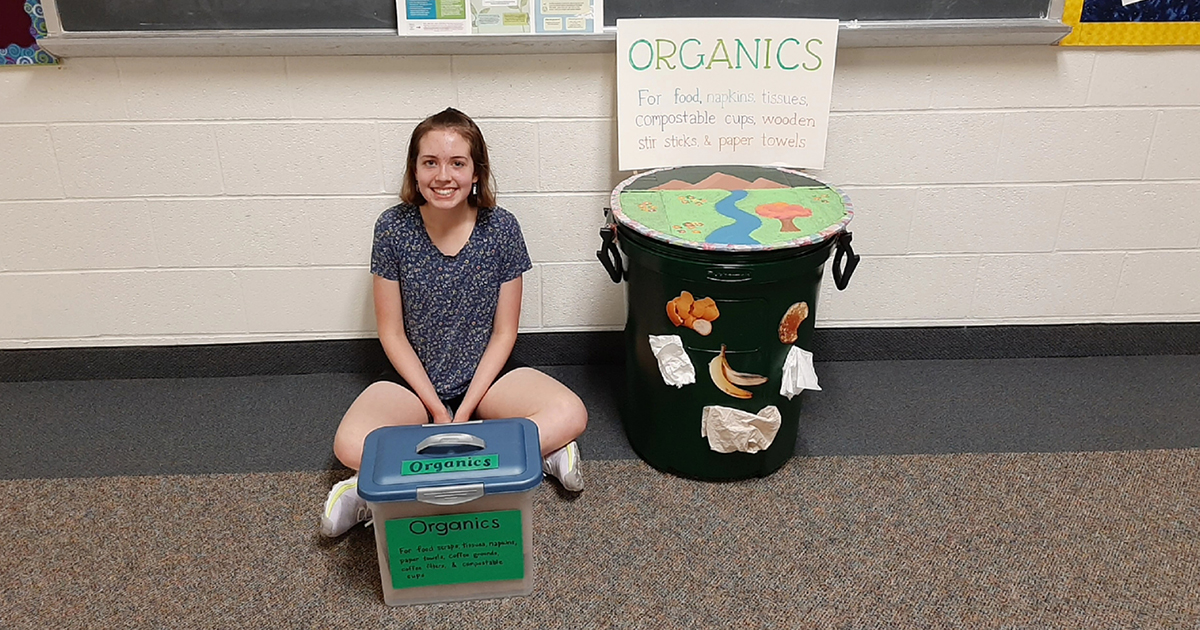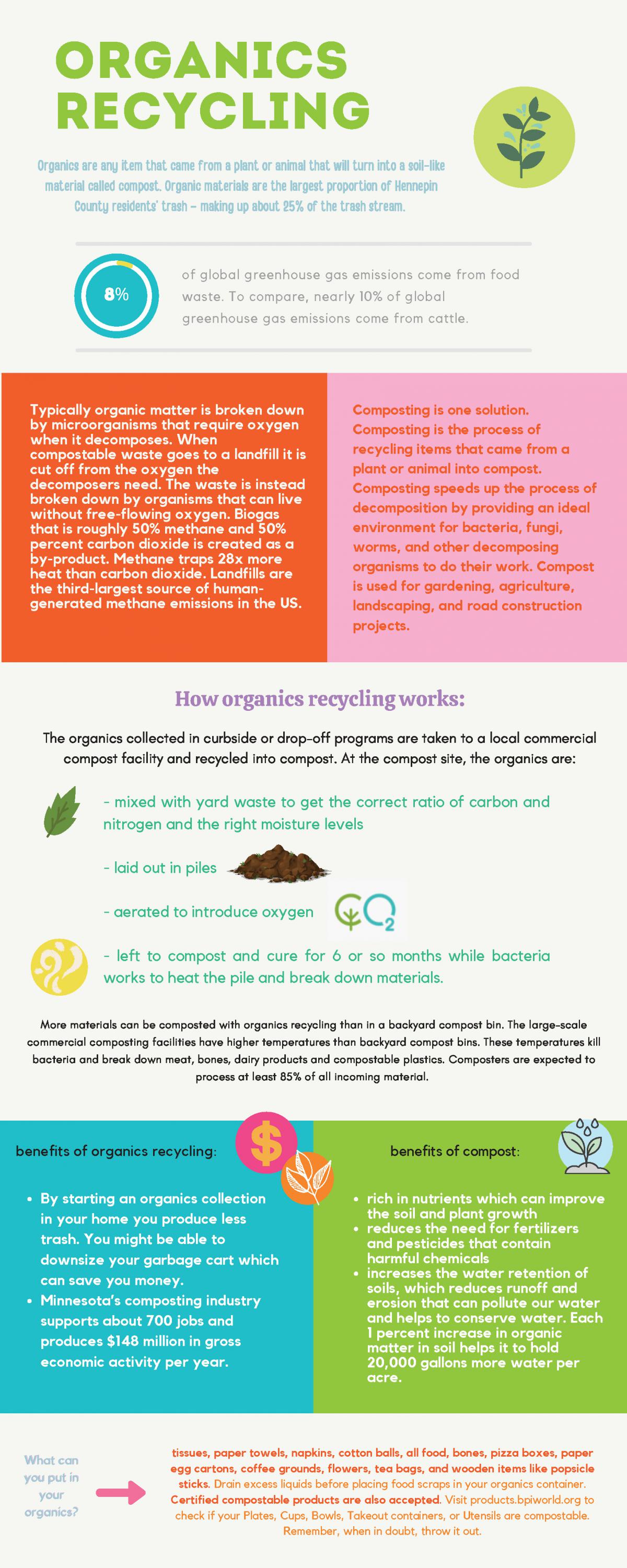2021 ESI guest post: The benefits of composting and how to do it
This is a guest blog post from Lydia, an Environmental Stewardship Institute fellow this summer. Lydia set up organics recycling at her church and put her design skills to work creating an infographic to explain the benefits of composting and how to do it. (Note: Opinions expressed in ESI projects are those of the program participant and do not necessarily represent those of FMR.)
* * * * *
I transformed an unneeded plastic bin and container into organics recycling bins to put in the social hall of my church. I also researched how composting works and organics recycling programs in the Twin Cities and Metro. I made an infographic with the information and displayed it above the organics bin in the church social hall so people could learn more.
Check out the whole infographic at this link. Here's the first page:
Why I chose this project
I have an organics recycling at my home that gets a lot of use. I like having it because it means that we don't have to throw food away.
I noticed that my church did not have an organics, and I wanted to install one. We had been throwing away compostable cups, napkins, paper towels, coffee grounds and food scraps, so I knew we would get use out of it. I also wanted to do a project that would produce a tangible result and allow me to design.
What's important about this issue / What I hope you take away
Organic materials make up about 25% of the trash stream in Hennepin county.
When food waste decomposes in a landfill, it emits methane and carbon dioxide. By signing up for organics recycling in your city or doing your own backyard composting, you can reduce food waste and create compost. Compost contains nutrients that improve plant growth, and using compost can improve the soil and reduce the use of synthetic fertilizers and water.
* * * * *
What's the Environmental Stewardship Institute?
FMR's Environmental Stewardship Institute (ESI) fosters a diverse next generation of environmental leaders through an immersive program of local river issues and professional development that supports an interdisciplinary exploration of the environmental field.
FMR created ESI in 2019 to address the gap between environmental education and a career path in the environmental field. While many high schools offer green teams or eco clubs, many young people don't have the opportunity to explore what a career in the environmental field can look like. As an environmental organization, FMR wants to use our resources to help address that gap, in turn growing a stronger, more equitable future for the environmental movement.
ESI provides a paid job experience and foundational learning to a group of students, our ESI fellows, curious about environmental career paths. Upon completing the program, fellows are more prepared for continued schooling in environmental subjects and have work experience to lean on for future job opportunities across a variety of disciplines in the environmental field.

